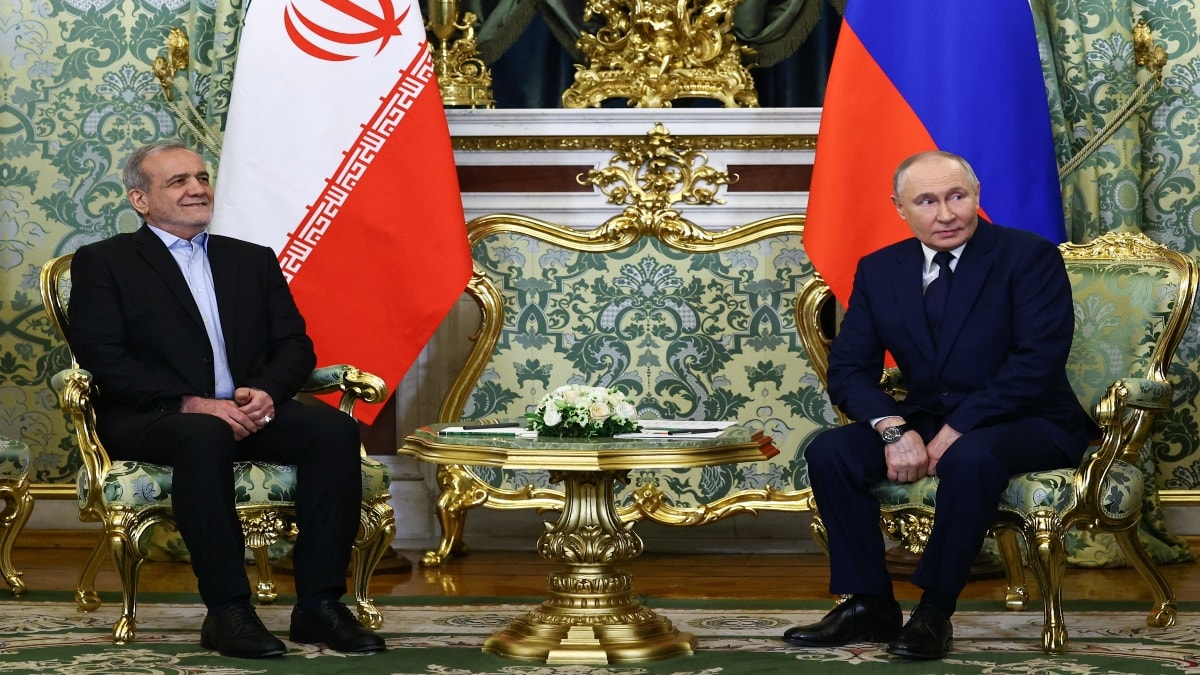
“It is truly a breakthrough document,” said Russian President Vladimir Putin at the signing ceremony, adding that the two heavily sanctioned countries were “united.. in taking our relationship to a new level”
read more
The Russian and Iranian presidents signed a “comprehensive strategic partnership treaty” in the Kremlin on Friday.
“It is truly a breakthrough document,” AFP quoted Russian President Vladimir Putin as saying at the signing ceremony, adding that the two heavily sanctioned countries were “united.. in taking our relationship to a new level”.
Ahead of the signing of a strategic partnership treaty, Iranian President Masoud Pezeshkian told his Russian counterpart Putin that he believed their two countries could finalise agreements on the construction of a nuclear power plant in Iran as the two leaders held talks in Moscow on Friday.
Putin greeted Pezeshkian, who is on his first Kremlin visit since winning the presidency last July, in a grand Kremlin room as they sat down at an ornate table flanked by the two countries’ flags.
“We will discuss all areas of our co-operation and sign a comprehensive strategic partnership agreement,” Reuters quoted Putin as saying earlier.
“We have been working on it for a long time and I am very pleased that this work has been completed,” he said, adding it should further boost trade and economic ties.
Since the start of the Ukraine war, Moscow has strengthened ties with Iran and other US adversaries, including North Korea, and has established strategic pacts with Pyongyang and Belarus, along with a partnership agreement with China.
While the 20-year Russia-Iran agreement is not expected to include a mutual defence clause like those with Minsk and Pyongyang, it is still likely to raise concerns in the West, which views both nations as destabilising forces, reported Reuters.
Both Moscow and Tehran insist their deepening relationship is not aimed at other countries.
Russia has extensively utilised Iranian drones in Ukraine, and the US accused Tehran in September of supplying ballistic missiles to Russia, a claim Tehran denies. The Kremlin has not confirmed receiving Iranian missiles but acknowledges cooperation in “sensitive areas.”
Historically, Russia has provided Iran with S-300 air defense systems, and Iranian media reports suggest interest in acquiring more advanced systems like the S-400 and Russian fighter jets.
Pezeshkian’s visit to Moscow comes amid waning Iranian influence in the Middle East, particularly after setbacks in Syria and Gaza. Russia also faces challenges in Syria, where its military presence is uncertain under new local rulers.
Pezeshkian met Putin during the BRICS summit in Kazan and had discussions with Russian Prime Minister Mikhail Mishustin about deepening cooperation in transport, energy, education, tourism, and cultural sectors. They are also expected to address Western sanctions on Iran’s oil industry.
Notably, Russia built Iran’s first nuclear power plant at Bushehr, which began operations in 2013, and has contracts for two additional reactors.
With inputs from agencies


